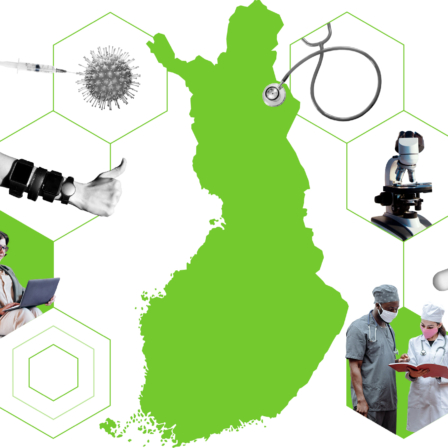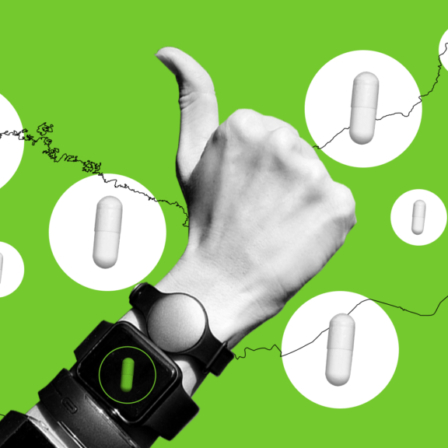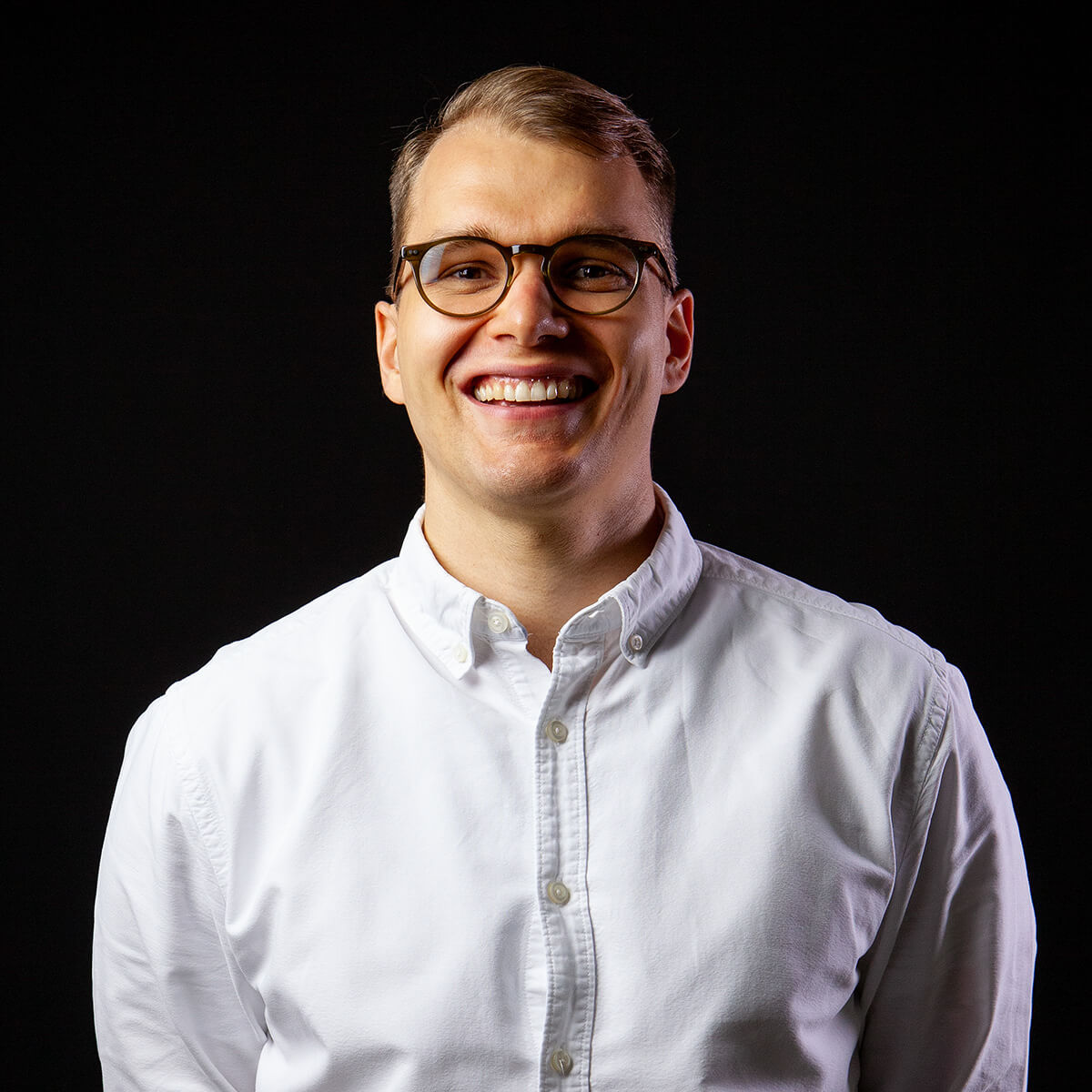Preparation of decentralised drug trials
Drug trials are increasingly using digital methods, such as measurements taken by patients at home, to facilitate the daily routines of researchers and patients. The projects carried out in 2023 involved preparing materials for the drug trial permit application process.
What is it about?
Decentralised drug trials have long been at the core of international discussions in the pharmaceutical industry. The term refers to clinical medical trials that use physical and digital methods that are independent of time and place, such as interventions or measurements carried out at the patient’s home. A significant portion of current drug trials already use digital methods, such as online consent.
However, the decentralisation of trials could be used much more extensively. Successful decentralisation makes the patients’ daily routines easier and facilitates participation in trials. Decentralised methods complement the range of tools used by trials and can thus bolster Finland’s status in clinical medical trials.
Sitra aims to increase the number of decentralised clinical medical trials in Finland. With the projects carried out in 2023, it supported research groups in applying for a permit from the Finnish Medical Agency (Fimea) or corresponding agency to conduct trials in which the use of decentralised methods, such as remote measurements or drug administration at the patient’s home, play a key role. Funding could also be provided for the preparation of a research plan, provided that it is preparatory to the application for a research permit.
The projects that were chosen on the basis of the call for funding broadly cover the drug trial field and represent different diseases and diverse methods utilised in them.
Results
Digital diagnostics and breast cancer monitoring
Breast cancer is the most commonly diagnosed cancer in women and a common cause of death. There is, though, much room for improvement in monitoring the disease. The study aimed to strengthen personalised care and diagnostics and used digital monitoring of symptoms and treatment.
The project developed new digital solutions to enhance remote monitoring of cancer patients’ well-being and diagnostics. The work used the existing Finnish and international follow-up and quality of life questionnaires standardised by the European Organisation for Research and Treatment of Cancer (in Finnish), and developed completely new methods were developed for monitoring patients’ psychological well-being.
The tools will enable personalised patient treatment and improve communications between care teams and patients. In addition, the participation and recruitment of patients in clinical trials will become significantly easier.
The digital tools (in Finnish) developed during the study have been released for free use, so that they can be used in any Finnish healthcare unit. Sitra funding was used to customise the mobile app used in the study.
Project implemented by: University of Jyväskylä, Sauli Vuoti, sauli.j.vuoti (at) jyu.fi
Effects of medicines on RCVS syndrome that causes severe headache
The treatment of the reversible cerebral vasoconstriction syndrome (RCVS), which causes sudden, debilitating headaches, is currently based on expert opinion and observation due to the lack of data from randomised medical trials. The syndrome is associated with the constriction and expansion of cerebral arteries. RCVS can be triggered by several factors, such as substance abuse or childbirth.
The aim of the trial is to find out how effective drugs (nimodipine and amlodipine) are in reducing the symptoms. Surveys concerning symptoms are carried out digitally and the research personnel are trained to use decentralised methods.
The Sitra-funded project has prepared a trial to be launched towards the end of 2023. Sitra funding has been used to design the trial and identify new technologies suitable for remote monitoring. The trial will use an app installed on patients’ own mobile devices to allow them to report their symptoms during or immediately after a headache. This will provide fresh, high-quality data and avoid leaving it up to the patient to describe the symptoms from memory.
The trial will use the digital care pathway for headache patients offered by Health Village, as it was found to be an appropriate and cost-effective solution. On this basis, a digital care pathway has been adapted for the trial. The trial will also serve as a pilot for a digital care pathway in HUS Group (the biggest healthcare provider in Finland). If it works well, it will also be used in future trials at HUS.
Project implemented by: Hospital District of Helsinki and Uusimaa, Maria Mironova, maria.mironova (at) hus.fi
Nasally administered Covid-19 vaccine
This medical trial, conducted by Rokote Labs, is investigating the effects of a nasally administered coronavirus vaccine against SARS-CoV-2. The trial uses decentralised methods including the recruitment of patient groups, pre-assessment, providing consent and the measurement of patients’ body temperature. The funding covers both the application for a research permit and preparation of a research plan.
The Sitra-funded project has prepared the research and the application for a research permit and identified system and service providers whose applications support distributed methods.
The preparatory project identified development needs and lessons learned:
Further harmonisation of decentralised methodologies throughout the EU should be pursued to avoid significant country-specific customisation. Many complete solutions on the market do not meet the exact requirements in Finland, which increases the workload when small apps have to be integrated. In addition, patients with bank identifiers may be over-represented in decentralised trials in Finland, where identification services are generally provided through banks.
For small, early-stage companies, it may be cost-effective to use decentralised solutions only in the later stages of a trial, when there are more patients. To make this possible, for example, a pre-approved set of systems suitable for Finland would be needed to support decentralised methods.
Project implemented by: Rokote Laboratories Finland Oy, Tuija Keinonen, tuija.keinonen (at) rokote.com


